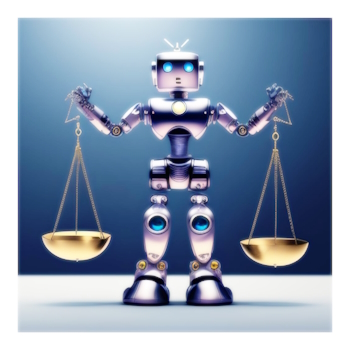
It’s become a saying on the Internet without many people understanding it: “Code is Law”. This is a reference to one of the works of Lawrence Lessig, revised already since it’s original publication.
Code Version 2.0 dealt with much of the nuances of Law and Code in an era where we are connected by code. The fact that you’re reading this implicitly means that the Code allowed it.
Here’s an example that weaves it’s way throughout our society.
One of the more disturbing things to consider is that when Alexis de Tocqueville wrote Democracy in America 1, he recognized the jury as a powerful mechanism for democracy itself.
“…If it is your intention to correct the abuses of unlicensed printing and to restore the use of orderly language, you may in the first instance try the offender by a jury; but if the jury acquits him, the opinion which was that of a single individual becomes the opinion of the country at large…”
Alexis de Tocqueville, Volume 1 of Democracy in America, Chapter XI: Liberty of the Press In the United States (direct link to the chapter within Project Gutenberg’s free copy of the book)
In this, he makes the point that public opinion on an issue is summarized by the jury, for better and worse. Implicit in that is the discussion within the Jury itself, as well as the public opinion at the time of the trial. This is indeed a powerful thing, because it allows the people to decide instead of those in authority. Indeed, the jury gives authority to the people.
‘The People’, of course, means the citizens of a nation, and within that there is discourse between members of society regarding whether something is or is not right, or ethical, within the context of that society. In essence, it allows ethics to breathe, and in so doing, it allows Law to be guided by the ethics of a society.
It’s likely no mistake that some of the greatest concerns in society stem from divisions in what people consider to be ethical. Abortion is one of those key issues, where the ethics of the rights of a woman are put into conflict with the rights of an unborn child. On either side of the debate, people have an ethical stance based on their beliefs without compromise. Which is more important? It’s an extreme example, and one that is still playing out in less than complimentary ways for society.
Clearly no large language model will solve it, since the large language models are trained with implicitly biased training models and algorithms which is why they shouldn’t be involved, and this would likely go for general artificial intelligences of the future. Machine learning, or deep learning, learns from us, and every learning model is developed by it’s own secret jury whose stewed biases may not reflect the whole of society.
In fact, they would reflect a subset of society that is as disconnected from society as the companies that make them, since the company hires people based on it’s own values to move toward their version of success. Companies are about making money. Creating value is a very subjective thing for human society, but money is it’s currency.
With artificial intelligence being involved in so many things and with them becoming more and more involved, people should at the least be concerned:
- AI-powered driving systems are trained to identify people, yet darker shades of humanity are not seen.
- AI-powered facial recognition systems are trained on datasets of facial images. The code that governs these systems determines which features of a face are used to identify individuals, and how those features are compared to the data in the dataset. As a result, the code can have a significant impact on the accuracy and fairness of these systems, which has been shown to have an ethnic bias.
- AI-powered search engines are designed to rank websites and other online content according to their relevance to a user’s query. The code that governs these systems determines how relevance is calculated, and which factors are considered. As a result, the code can have a significant impact on the information that users see, and therefore what they discuss, and how they are influenced.
- AI-powered social media platforms are designed to connect users with each other and to share content. The code that governs these platforms determines how users are recommended to each other, and how content is filtered and ranked. As a result, the code can have a significant impact on the experiences of users on these platforms – aggregating into echo chambers.
We were behind before artificial intelligence reared it’s head recently with the availability of large language models, separating ourselves in ways that polarized and made compromise impossible.
Maybe it’s time for Code Version 3.0. Maybe it’s time we really got to talking about how our technology will impact society beyond a few smart people.
1 This was covered in Volume 1 of ‘Democracy in America‘, available for free here on Project Gutenberg.
2 thoughts on “Exploring Beyond Code 2.0: Into A World of AI.”